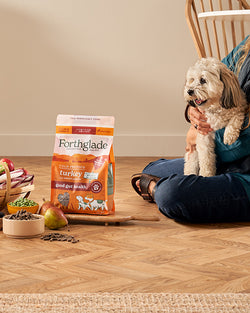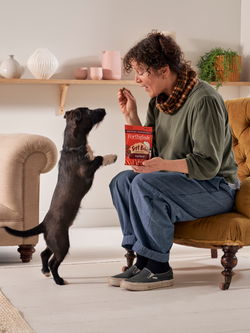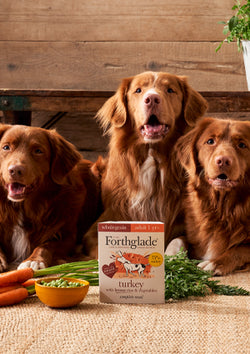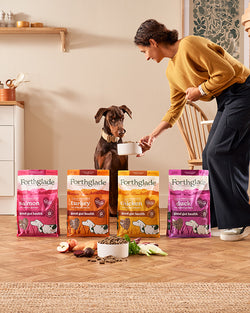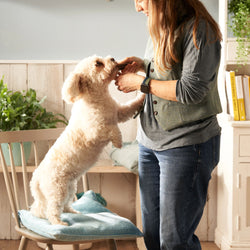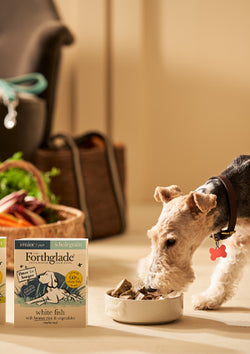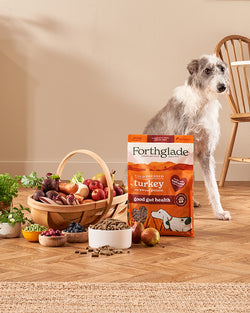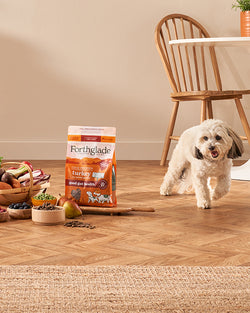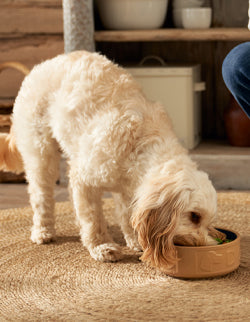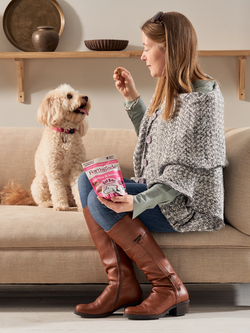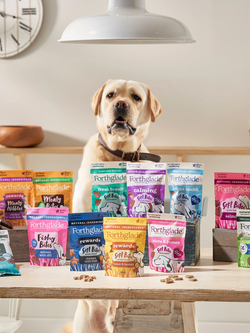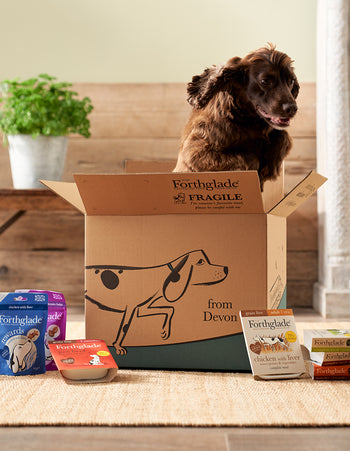What Is The Difference Between Puppy, Adult & Senior Dog Food?
When it comes to feeding your dog, one size certainly doesn’t fit all. Just as our nutritional needs change throughout life, so too do those of our four-legged companions. From playful puppies to active adults and golden oldies, your dog’s diet needs to evolve with them to support their growth, health and wellbeing.
In this article, we’ll explore the differences between puppy, adult, and senior dog food, including what makes each life stage unique, whether a food change is necessary, and how to choose the right food for your dog’s age.
Whether you’re welcoming a new puppy or caring for a senior dog, understanding your dog's nutritional needs at every stage of life is key to helping them thrive.

What Is Puppy Dog Food?
Puppies are full of energy, curiosity, and endless wiggles – and their food needs to keep up with all that growing and exploring. During this stage of rapid development, puppies require:
- Higher calorie content to fuel their activity and growth
- More protein to support healthy muscle and tissue development
- Increased levels of calcium to aid in bone growth
- DHA for healthy brain and eye development
Puppy food also tends to come in smaller kibble sizes or soft, easy-to-chew formats. That’s because puppies have smaller mouths and developing teeth, so the food needs to be both easy to chew and safe to swallow.
Discover our naturally nourishing puppy food range, specially designed to support pups aged 2 months+ with all the goodness they need to grow strong and healthy.
Is Puppy Dog Food Necessary?
Yes, puppy food is specially formulated to meet the unique needs of a developing dog. Feeding adult food too early can mean your puppy misses out on key nutrients and may not grow as healthily.
| Puppy Food | Adult Dog Food |
| Higher in calories and protein | Balanced for maintenance, not growth |
| Includes added nutrients like DHA | Designed for energy stability |
| Smaller, softer pieces | Varies by brand, often larger kibble |
When To Switch To Adult Dog Food?
Most dogs are ready to switch to adult dog food around 12 months old, depending on their breed and size. Larger breeds may take longer to mature, while small dogs can transition a little earlier.
Not sure how to transition properly? Check out our guide: how to change dog food
What Is Adult Dog Food?
Adult dog food is all about maintenance – supporting your dog through their prime years by keeping them energised, healthy and happy.
At this stage, you’ve got more flexibility to tailor your dog’s diet to suit their lifestyle. From wet to dry, grain-free to wholegrain, there are plenty of ways to nourish your dog with wholesome meals. Key factors to consider when choosing adult food:
- Breed and size: Larger dogs need more energy and joint support.
- Activity level: Working or highly active dogs may need higher calorie foods.
-
Health needs: Consider any sensitivities, intolerances or medical issues.
Explore our complete range of adult dog food, filled with natural ingredients and made without any nasties.

What Is Senior Dog Food?
As dogs age, their needs begin to change. Older dogs are often less active, which means they burn fewer calories. Their metabolisms slow, and they may begin to develop joint stiffness or digestive sensitivities. Senior dog food is designed to support these changes, typically with:
- Lower fat and calorie content to prevent unnecessary weight gain
- Added glucosamine and chondroitin for joint support
- Easy-to-digest ingredients for sensitive stomachs
- Balanced fibre levels to support gut health
See our full senior dog food collection for natural, gently cooked meals created with senior needs in mind.
For more tips, read our helpful guide: when to start feeding senior dog food
Is Senior Dog Food Necessary?
Not always. Some older dogs continue to thrive on adult dog food, especially if they’re still active and healthy. In these cases, feeding smaller, more frequent meals may be enough. If your dog shows signs of slowing down, gaining weight easily, or has joint issues, a switch to senior food could make a real difference.
Always speak to your vet before making any dietary changes, especially for senior pets.

What Age Are Dogs Considered Seniors?
Generally, dogs are considered senior from around 7 years old. However, this can vary by breed and size:
- Small dogs (under 10kg) – 8 to 10 years
- Medium dogs (10–25kg) – 7 to 8 years
-
Large dogs (25kg+) – 6 to 7 years
Every dog ages differently, so it’s important to monitor changes in energy levels, weight, mobility and appetite as they get older.
Can I Feed My Dog Adult Dog Food for Their Whole Life?
Technically, yes but that doesn’t mean it’s ideal. Feeding your dog the same food forever can limit their nutrient variety and may not support them as their needs change. Just like humans, dogs benefit from a balanced, varied diet, switching between wet and dry food, or rotating flavours and recipes, can help keep mealtimes exciting and nutritionally rich.
Explore variety here:
Offering a mix of formats can also be helpful if your dog is picky, has dental concerns, or needs extra hydration.
Takeaway
Feeding your dog well throughout their life means adapting their diet to meet changing needs, from energetic puppyhood to the steady years of adulthood and into their golden senior stage.
No matter your dog’s age, it’s essential to provide them with complete and natural meals that support their health at every stage. And when in doubt, your vet is always your best source of advice.






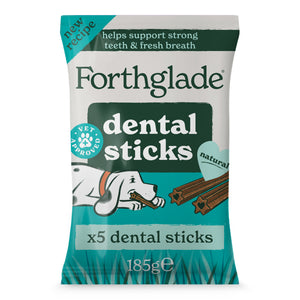

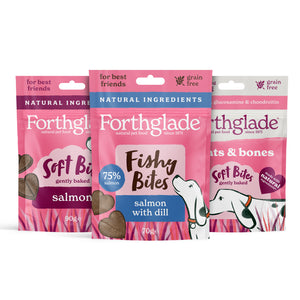
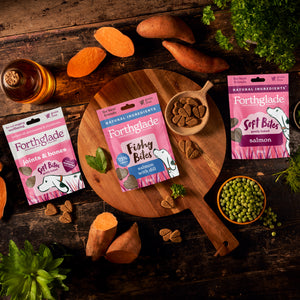


 FAST & FREE DELIVERY ON ORDERS £40+*
FAST & FREE DELIVERY ON ORDERS £40+*
 SUBSCRIBE TO SAVE 10% OFF EVERY ORDER
SUBSCRIBE TO SAVE 10% OFF EVERY ORDER
 OVER 13,600 5 STAR REVIEWS
OVER 13,600 5 STAR REVIEWS



